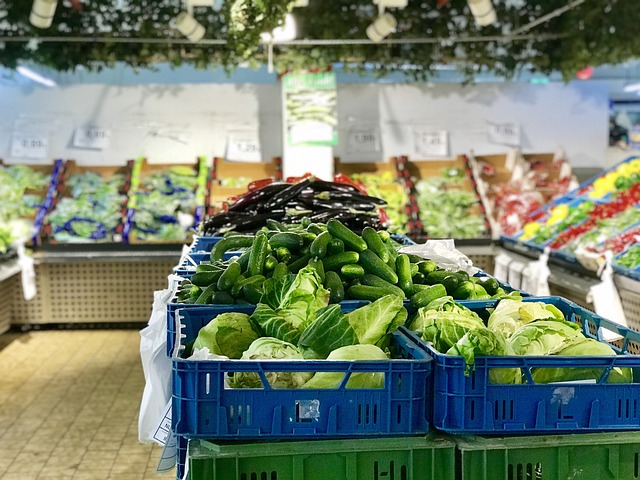Effective yard waste removal and recycling, such as composting and mulching, are sustainable practices for homeowners. By categorizing waste, using dedicated bins, and taking advantage of community services or vermicomposting, busy individuals can reduce landfill strain and environmental impact while providing valuable nutrients for gardening. These simple techniques contribute to both ecological sustainability and lush outdoor spaces.
Staying on top of garden waste management can be a challenge for busy homeowners. With limited time, it’s easy to overlook the environmental impact of yard waste. This article provides practical solutions to efficiently navigate Yard Waste Removal and Recycling. We’ll explore different types of yard waste and their environmental implications, followed by strategic tips for busy individuals to manage waste effectively. Discover simple recycling techniques to reduce, reuse, and recycle garden materials, ensuring a greener and more sustainable approach to home maintenance.
- Understanding Yard Waste: Types and Impact
- Efficient Yard Waste Removal Strategies for Busy Homeowners
- Recycling Garden Waste: Benefits and Simple Techniques
Understanding Yard Waste: Types and Impact

Yard waste, a term that encompasses a variety of organic materials discarded from gardening and landscaping activities, is an inevitable by-product of maintaining a lush outdoor space. This includes items like grass clippings, leaves, tree branches, hedge trimmings, and garden debris. While some yard waste ends up in landfills, proper management strategies offer more sustainable alternatives through recycling and composting.
The impact of improper yard waste removal is significant. Landfills often struggle to accommodate the vast amounts of organic material generated each year, leading to space constraints. Moreover, organic waste decomposing in landfills produces methane, a potent greenhouse gas. By adopting eco-friendly practices such as yard waste recycling and composting, homeowners can contribute to reducing landfill waste, mitigating environmental impact, and potentially enhancing their garden’s health through nutrient-rich compost.
Efficient Yard Waste Removal Strategies for Busy Homeowners

Efficient Yard Waste Removal and Recycling for Busy Homeowners
In today’s fast-paced world, finding time to tend to yard work can be a challenge for homeowners with busy schedules. However, proper yard waste management is essential not only for maintaining a lush outdoor space but also for environmental sustainability. One of the most effective strategies is to implement a recycling program tailored to your garden’s needs. Start by sorting your yard waste into organic and inorganic categories; organic materials like leaves, grass clippings, and kitchen scraps can be composted, reducing landfill waste. Inorganic items such as branches, stakes, and old plants should be recycled or disposed of responsibly. Many communities offer green waste collection services, making it easier for homeowners to divert yard waste from landfills.
Consider investing in a high-quality recycling bin with separate compartments for different types of organic waste. This encourages consistent sorting and promotes the health of your garden. Additionally, explore local gardening centers for innovative solutions like vermicomposting bins, which use worms to transform food scraps into nutrient-rich compost. By adopting these efficient yard waste removal and recycling strategies, busy homeowners can stay on top of their outdoor responsibilities while contributing to a greener planet.
Recycling Garden Waste: Benefits and Simple Techniques

Recycling garden waste is an eco-friendly practice that offers numerous benefits for busy homeowners. By implementing simple techniques, you can reduce the amount of yard waste ending up in landfills and contribute to a greener environment. One significant advantage is the potential for composting, which transforms organic materials like leaves, grass clippings, and food scraps into nutrient-rich soil amendments. This not only cuts down on garbage collection costs but also fosters a sustainable gardening cycle.
Simple techniques include setting up a compost bin in your yard or utilizing container composting if space is limited. Regularly mixing and turning the waste ensures proper aeration, speeding up the decomposition process. Additionally, chipping branches and small twigs can create mulch, which enriches soil structure and suppresses weed growth. These practices not only promote a healthier garden but also reduce the need for costly yard waste removal services.
In today’s fast-paced world, effective garden waste management can be a challenge for busy homeowners. By understanding the types of yard waste and their environmental impact, individuals can implement efficient removal strategies tailored to their schedules. Additionally, embracing eco-friendly practices by recycling garden waste offers numerous benefits, from reducing landfill strain to creating nutrient-rich compost. Simple techniques like composting kitchen scraps and yard clippings not only divert waste but also enhance soil health, fostering a sustainable and thriving outdoor space despite time constraints. Incorporating these strategies enables homeowners to actively contribute to a greener environment while maintaining a well-kept garden.
